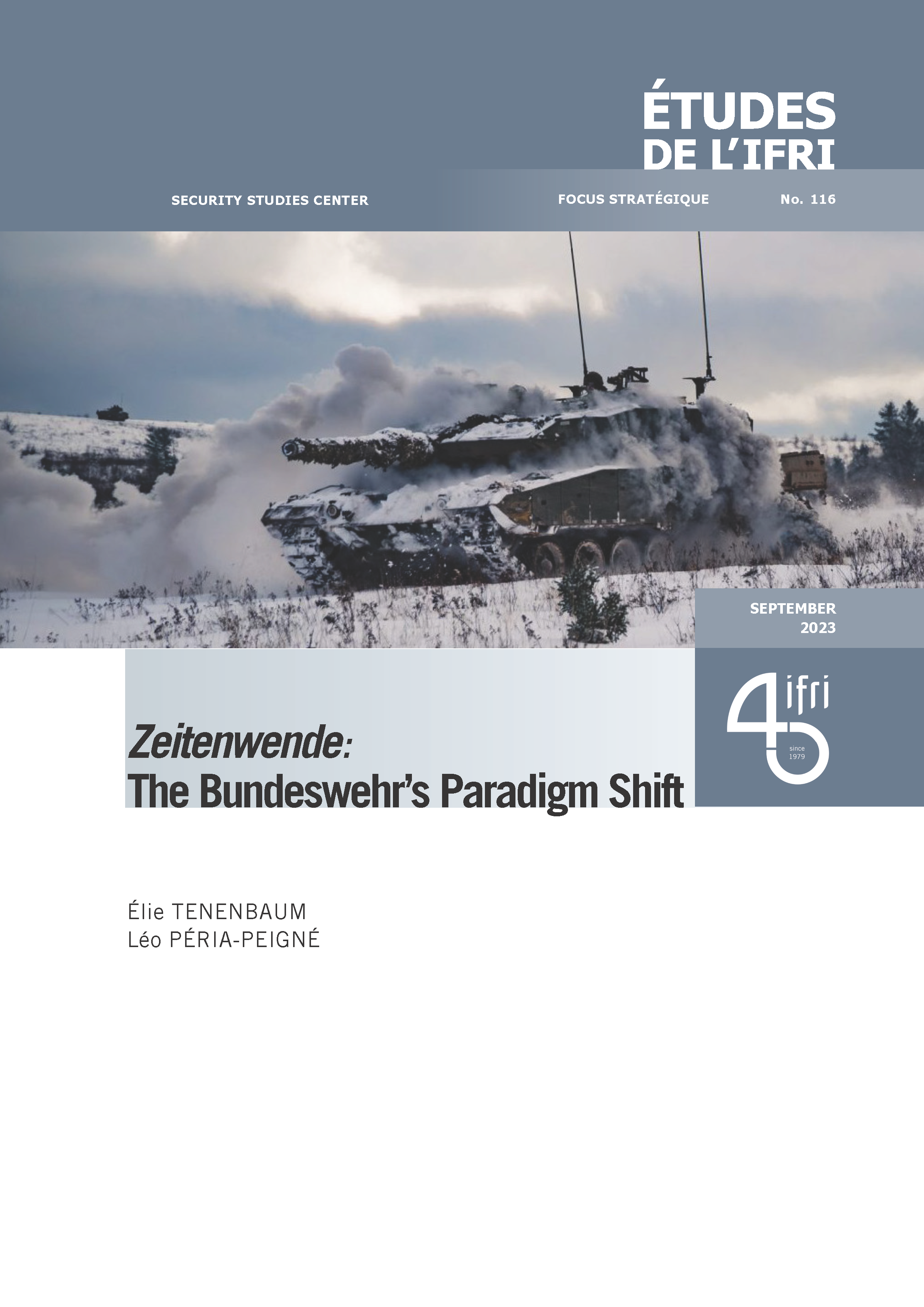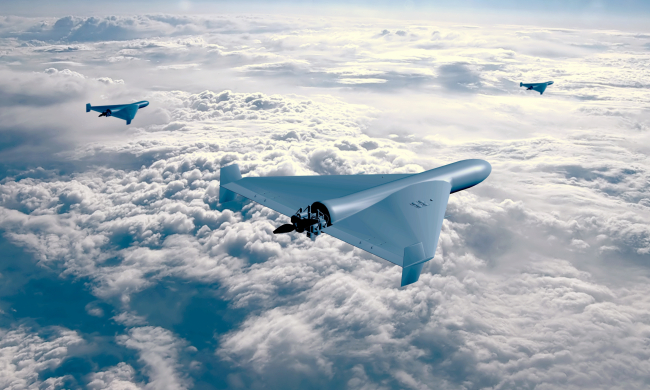Zeitenwende: The Bundeswehr’s Paradigm Shift

Russia’s invasion of Ukraine on February 24, 2022, marked a turning point in German defense policy. After thirty years of military downsizing, the Bundeswehr found itself at an extremely low capability level just as a high-intensity war involving a great power was breaking out on Europe’s doorstep for the first time since 1945. Chancellor Olaf Scholz’s response was to embrace this “turning point” (Zeitenwende) by launching a major program to reequip Germany’s armed forces.
However, this change is part of a longer trend that started after the first wake-up call in 2014, following which Germany began tentatively to rebuild its military power. Under American pressure to share the defense burden, the new government that took office in 2021 included in its coalition agreement a national security strategy and an increase in defense spending. The war in Ukraine precipitated these decisions, combining the urgent need to provide arms with the more gradual pace of a long-term rearmament program.
In order to implement this rearmament plan, Olaf Scholz’s government set up a special fund (Sondervermögen) of €100 billion, financed by debt and dedicated entirely to the procurement of new materiel for the Bundeswehr. In addition to capability modernization, the Zeitenwende is founded on significant ambition within NATO. The North Atlantic Alliance remains the fundamental framework for the Bundeswehr, both on a conceptual and a doctrinal level. Finally, this multilateral integration is underpinned by a robust network of bilateral cooperations. The first and most important of these is undoubtedly with the United States; this relationship is carefully cultivated by Berlin despite the tensions caused by American frustrations with German shortcomings on defense issues.
All of these considerations bring us to an assessment of the implications of such a change for France, both in its partnership with Germany and at the European and transatlantic level.

Available in:
Regions and themes
ISBN / ISSN
Share
Download the full analysis
This page contains only a summary of our work. If you would like to have access to all the information from our research on the subject, you can download the full version in PDF format.
Zeitenwende: The Bundeswehr’s Paradigm Shift
Related centers and programs
Discover our other research centers and programsFind out more
Discover all our analysesBundeswehr: From Zeitenwende (historic turning point) to Epochenbruch (epochal shift)
The Zeitenwende (historic turning point) announced by Olaf Scholz on February 27, 2022, is shifting into high gear. Financially supported by the March 2025 reform of Germany’s “debt break” and backed by a broad political and societal consensus to strengthen and modernize the Bundeswehr, Germany's military capabilities are set to rapidly increase over the coming years. Expected to assume a central role in the defense of the European continent in the context of changing transatlantic relations, Berlin’s military-political position on the continent is being radically transformed.
Main Battle Tank: Obsolescence or Renaissance?
Since February 2022, Russian and Ukrainian forces combined have lost more than 5,000 battle tanks, a much higher volume than all the European armor combined. Spearhead of the Soviet doctrine from which the two belligerents came, tanks were deployed in large numbers from the first day and proved to be a prime target for UAVs that became more numerous and efficient over the months. The large number of UAV strike videos against tanks has also led a certain number of observers to conclude, once again, that armor is obsolete on a modern battlefield. This approach must, however, be nuanced by a deeper study of the losses and their origin, UAVs rarely being the sole origin of the loss itself, often caused by a combination of factors such as mines, artillery or other anti-tank weapons.
Mapping the MilTech War: Eight Lessons from Ukraine’s Battlefield
This report maps out the evolution of key technologies that have emerged or developed in the last 4 years of the war in Ukraine. Its goal is to derive the lessons the North Atlantic Treaty Organization (NATO) could learn to strengthen its defensive capabilities and prepare for modern war, which is large-scale and conventional in nature.
"Iron Swords" A Military Analysis of Israel's War in Gaza
On October 7, 2023, Hamas' attack, dubbed “Al-Aqsa Flood,” caused a major shock and led Israel to launch the longest war in its history. Operation “Iron Swords” was notable for its unprecedented intensity, both in terms of the massive ground forces deployed and the firepower used.















